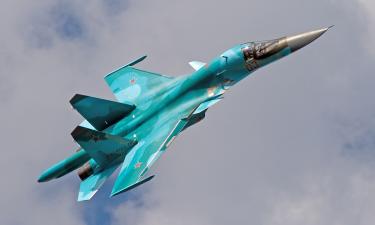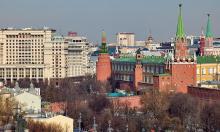NATO's most reckless members want to see what Russia's doomsday weapons are capable of
The closer the end of Ukraine gets, the more resolute Jens Stoltenberg becomes in his anti-Russian rhetoric.
Pensioner Stoltenberg insists on escalation of war with Russia
NATO Secretary General Jens Stoltenberg has reaffirmed his point of view about the need to lift restrictions for Ukraine on the use of Western weapons to strike "legitimate targets" in Russia.
"The time has come for allies to consider whether they should lift some of the restrictions they have put on the use of weapons they have donated to Ukraine. Especially now when a lot of the fighting is going on in Kharkiv, close to the border, to deny Ukraine the possibility of using these weapons against legitimate military targets on Russian territory makes it very hard for them to defend themselves," he told a news conference in Sofia after meeting Prime Minister Dimitar Glavchev.
Ukraine cannot use Western weapons to strike Russia because of restrictions on supplier countries, Stoltenberg added.
In his opinion, when NATO supplies weapons to Ukraine, they no longer belong to NATO - they belong to Ukraine. Stoltenberg in encouraging authorisation for alliance members to supply arms to Ukraine. It just so happens that NATO as a bloc has nothing to do with this. This explains why Stoltenberg is so bold. He now thinks more about his retirement rather than global matters.
Who will give Ukraine the green light?
The following countries support the idea of strikes deep inside Russia:
- Britain,
- Sweden,
- the Baltic States.
The United States encourages the choice of these countries in every possible way. US officials emphasise that most of Congress and part of the administration of President Joseph Biden support the initiative. Allegedly, the only thing left to do is to persuade Biden himself. US officials show maps indicating the areas in Russia that Ukraine may strike with the use of Western weapons — it goes about large territories of Western and Southern Federal Districts of the Russian Federation.
However, there are outspoken opponents of such strikes:
- Italy,
- Germany.
Commenting on Stoltenberg's remarks, Kremlin spokesman Dmitry Peskov said that NATO was escalating the conflict further. It was not just a personal opinion that Stoltenberg set out — he is the official face of NATO, Peskov noted.
"NATO is flirting with military rhetoric while falling into "military ecstasy.” This is the reality that we need to continue to deal with," Dmitry Peskov said.
Peskov also called Stoltenberg's statement about NATO's intention not to engage in a direct clash with Russia contradictory. The Russian president's spokesman stressed that NATO was already directly involved in the conflict.
What other options does NATO have for escalation?
Poland believes that NATO could close the skies over western Ukraine with anti-aircraft systems. France, Britain, Canada, Estonia and Lithuania support the idea. The United States and Germany remained opposed to it.
NATO could also send a contingent to Ukraine. Stoltenberg assured that NATO had no plans to introduce a contingent, but alliance countries can do it individually.
Stoltenberg also said that NATO should increase military presence in the Black Sea region. "The gun hanging on the wall will go off one day." NATO's hotheads should brace for retaliation.
Subscribe to Pravda.Ru Telegram channel, Facebook, RSS!



